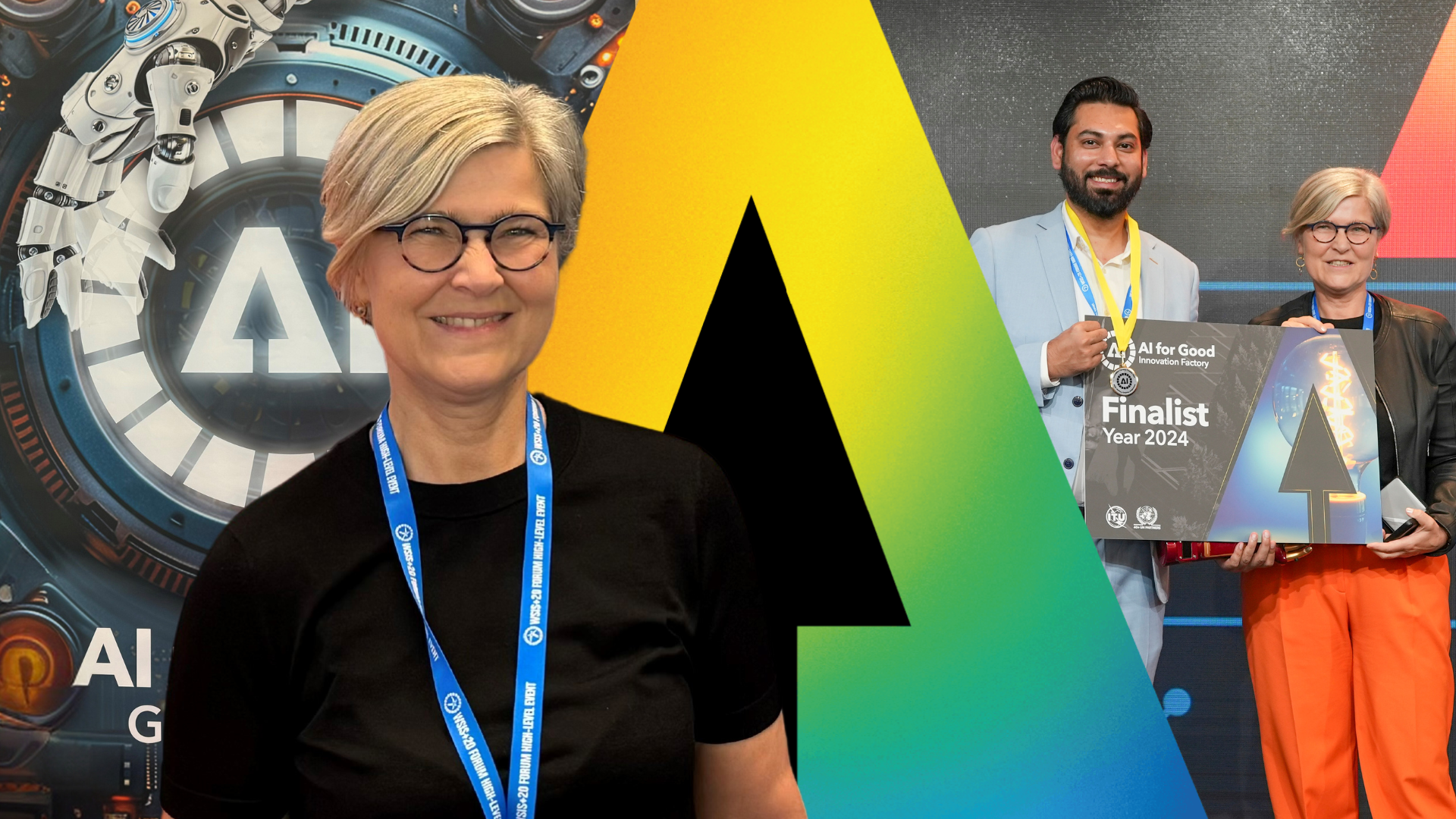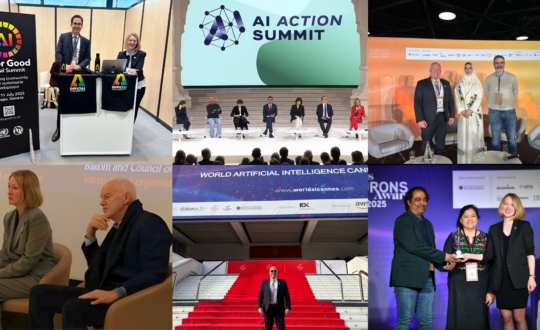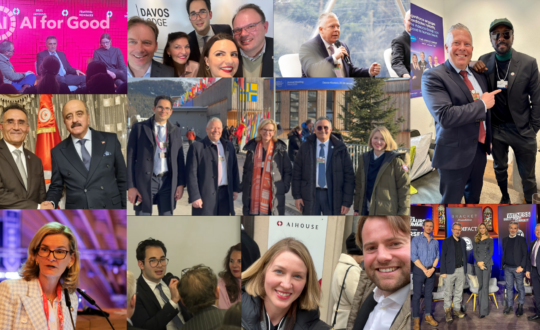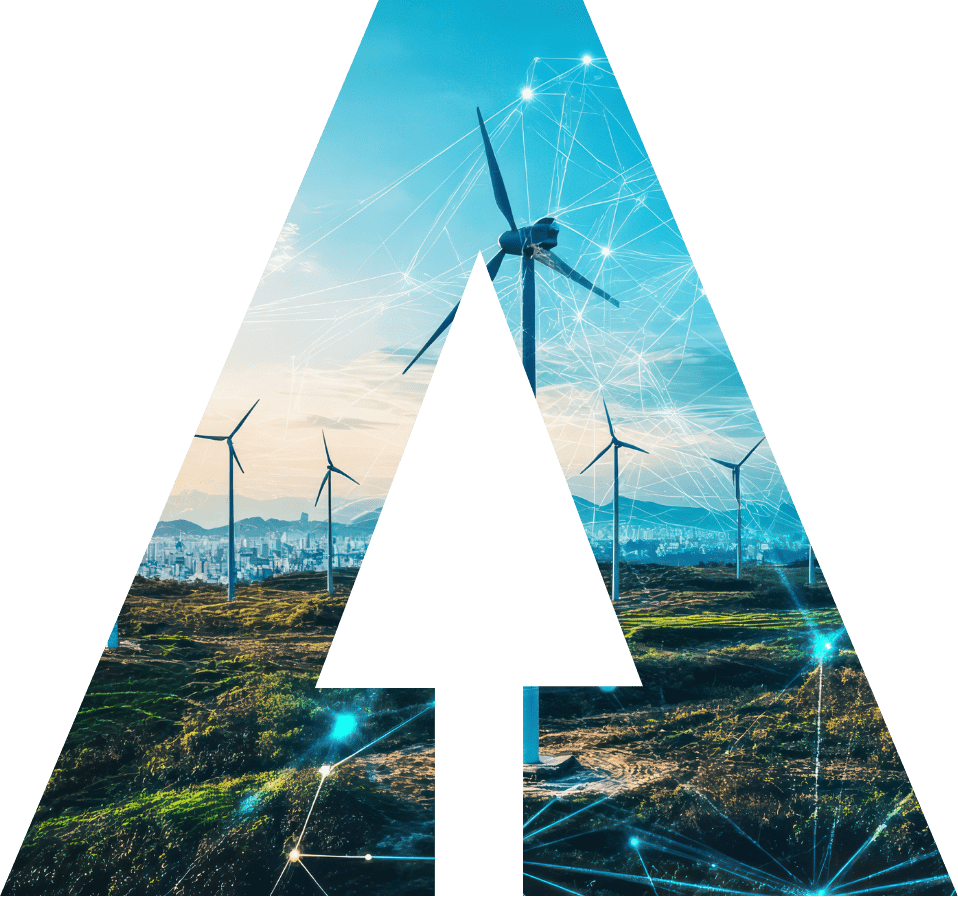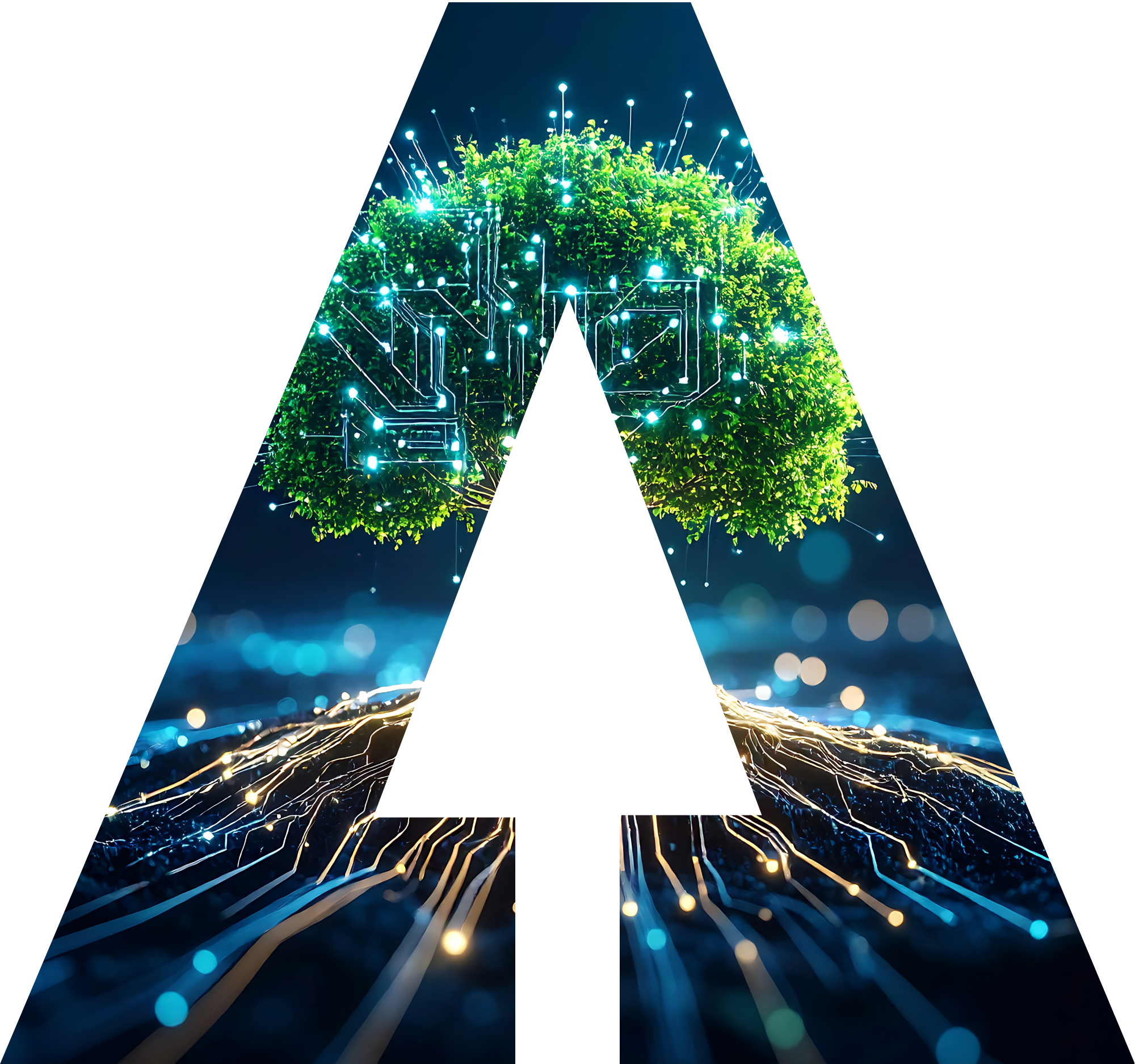The AI for Good Global Summit 2024, held in Geneva, brought together leaders and innovators from various sectors to discuss the transformative potential of artificial intelligence (AI). Among the distinguished guests was Ulrike Tagscherer, Chief Innovation Officer at KUKA. She shared her insights into the innovative use of AI in robotics and its impact on democratizing technology and achieving sustainability goals.
KUKA – a Networking and Sessions partner for this year’s AI for Good Global Summit, is a renowned robot manufacturer and automation powerhouse, leverages AI to enhance the functionality and accessibility of robots across various industries,
including automotive, industrial manufacturing, but also warehouse logistics and healthcare. Combined with AI technology, their robotics and automation solutions have the potential to revolutionize the robotics industry by simplifying the programming and operation of robots.
“The big thing that I see coming is that we can democratize the use of robots. These days, you need to be trained as a robot programmer,” underscored Ulrike Tagscherer.
While traditional robot programming is complex and time-consuming, AI promises to make it more accessible, allowing more people to utilize robots for various tasks. This democratization is expected to drive significant advancements in multiple sectors, from agriculture to disaster relief.
“Some experts predict that in a few years, programming will be so easy due to the LLMs that a six-year-old can program anything they want without their parents. If that’s coming true then I think a lot of people can use robots for tasks where it’s just not possible today,” highlighted Ulrike.
A promising aspect is the integration of AI to enhance sustainability practices. By leveraging data and advanced pattern recognition capabilities, AI can significantly improve the monitoring and optimization of resource usage. This technological approach not only enhances efficiency but also contributes to more sustainable operations across various sectors.
“Innovation, sustainability, AI, and digitalization are one thing, I don’t see that as separate things. For sustainability, we need data to understand where we are… and how much resources we are using,” added Ulrike.
Addressing the concerns about robots replacing humans, robots play a supportive role in taking on dull, dangerous, and dirty jobs, thereby enhancing human safety and productivity and contributing to a safer and better work environment. By automating repetitive and hazardous tasks, robots can significantly improve workplace conditions and allow humans to focus on more complex and creative endeavors.
“Robots per se are not very intelligent and we need to add cameras and sensors to them before they can be more intelligent. But they are very good in taking on repetitive tasks that humans don’t like to do,” noted Ulrike.
Ulrike Tagscherer’s participation in the AI for Good Global Summit as a judge in the Innovation Factory Grand Finale competition on May 30, 2024 underscores the company’s commitment to fostering innovation. By evaluating and supporting AI and robotics start-ups, KUKA aims to collaborate and drive technological advancements.
“I’m very keen on seeing all the start-ups that are here and I’m interested in what they can bring to the table to see where we could collaborate,” highlighted Ulrike.
This conversation during the AI for Good Global Summit 2024 highlighted the pivotal role of AI in democratizing technology, enhancing sustainability, and supporting human endeavors. By focusing on innovation and collaboration, Ulrike Tagscherer and KUKA are ensuring that their solutions contribute to a more efficient and sustainable future. Their work exemplifies the transformative potential of AI in creating a more accessible and environmentally friendly technological landscape.


 Register here
Register here